Assassin's Creed: Valhalla Review
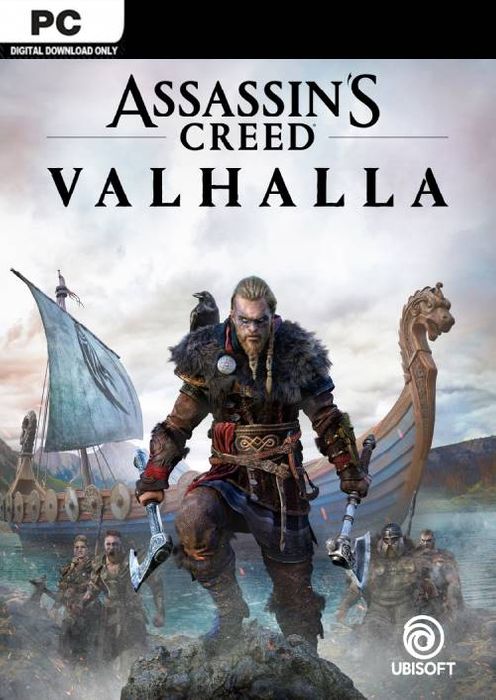
Pros
- Stunning graphics, perfect for the new generation consoles.
- Freedom to experiment with skills and playstyles with the fully resettable Skills page.
- All weapons are unique, meaning no more cluttered inventories.
- A storyline which weaves in Viking mythology and real historical events.
Cons
- There are a few irritating bugs that need to be ironed out in future patches.
- A few historical inaccuracies that might irk a few Viking fans!
Assassin’s Creed: Valhalla is the long-awaited 12th major instalment in Ubisoft’s Assassin’s Creed series. Set in snowy Norway and medieval England, AC Valhalla takes you through the Viking conquest of England in the 9th century. The game is available on new generation consoles and old, as well as on PC and Nintendo Switch, with the graphics settings being highly customisable to suit most set ups. Valhalla is huge, as is on trend with current RPGs, and players will be rewarded with ample EXP and collectibles if they spend time exploring each region with care and curiosity. Fans of the Assassin’s Creed game have been eager to see how medieval England and Viking history could be intertwined into the ancient order of assassins.You’ll play as the Viking warrior, Eivor Wolf-Kissed, who can be played either as a male or female. You follow their life from their vengeance-driven quest across Norway to their conquest of England. The game masterfully blends Anglo-Saxon Christianity, the remnants of Roman civilisation, and Norse culture to accurately portray the melting pot that was 9th century England.
You’ll follow Eivor’s quest from the icy landscape of Norway over to the rich soils of England.
World Setting
The game begins in the snowy landscape of Norway, where you’ll be thrown straight into clan conflict. It does a good job of easing you into combat, so that new Assassin’s Creed players can take their time to learn the more complex combat controls. The game, from the get-go, will wow you with its landscapes. Norway’s wintery scenes are gorgeous, but the game really comes into its own when you travel to England. There is such an attention to detail when it comes to the flowers and fauna of the English countryside, and the busyness of the wild landscape means that the more rural areas of England don’t feel too empty. And on top of this, the towns are well presented too; they aptly portray the crowded nature of early medieval English towns and villages. The soundtrack compliments the aesthetic of the game and adds to the immersiveness. The natural noises of the wilderness are contrasted by the hustle and bustle of the medieval towns.
During your entrance into England, you’ll witness an unforgettable sunrise over the English rivers.
Ubisoft have also done a good job of contrasting Anglo-Saxon and Norse settlements with the grandeur of the Roman ruins still present in 9th century England. As you explore the country, you’ll come across a lot of different remnants of Roman civilisation, which Anglo-Saxons could not replicate or restore when the Romans left. It shows a real commitment to representing what 9th century England would have been like, and it is evident that real time and effort went into researching the era in order to portray it fairly authentically. Long gone are the days that Vikings are portrayed with horned helmets in popular culture! Of course, there are a few historical inaccuracies. For example, dotted around the English landscape, you’ll find structures called Brochs, which are Iron Age drystone towers that are exclusively found in Scotland. Perhaps developers wanted to use them to add variety to the English countryside, and it has irked a few historians and fans of early Medieval England. Ubisoft, however, have emphasised that the game is still fictional regardless of the use of some real historical events, so the critique of architectural inaccuracies is a minor point.
[Valhalla] shows a real commitment to representing what 9th century England would have been like, and it is evident that real time and effort went into researching the era in order to portray it fairly authentically.
Story
The main story quest also plunges you straight into the complex politics of early Medieval England and the Viking conquest. Throughout, you’ll experience first-hand the importance of interclan relations to the survival of your own settlement. Whilst Vikings are usually depicted as blood thirsty raiders in popular culture, Valhalla shows their more diplomatic side. You’ll discover that Vikings were actually good at maintaining strong settlements, and political allies were of the upmost importance to surviving in hostile territories. Each region has its own storyline, and some are particularly immersive, as you become committed to making the right choices and helping allies in need. Some of the friends and allies you make along the way also have the opportunity to join your raiding crew, which is also exciting as you’ll get to watch your clan grow stronger throughout the game. It is also based somewhat on real historical events, so you’ll learn a bit about the Viking conquest whilst you play! Though, at times, the story implies that the Vikings experienced little resistance from the Anglo-Saxons. Eivor’s clan is able to settle in England unchallenged, whereas in reality, the Vikings had to fight for the ability to live there. Vikings were successful but they also had their fair share of losses, and perhaps this struggle could have been portrayed in a battle to establish your settlement. And your settlement’s longhouse is a bit of a stretch, as there were no large longhouses in England - but it does look pretty cool at the center of Ravensthorpe!
As Eivor, you’ll need to forge alliances to ensure the survival of your clan in England.
Combat
The variety of weapons, from axes to swords to spears, means that the player has a wide array of weapon options and play styles to choose from. They are also all unique, both aesthetically and stats-wise, which means you won’t clutter your inventory with duplicates looted from enemies. It means that when you pick up a new weapon or shield that there is a real excitement to open up your inventory to take a look at your new find! That being said, there are a few inaccuracies in the type of weapons and armor that were used during the 9th century. Two-handed Dane axes and flails were later inventions and hard leather armor was incredibly rare as tunics and chainmail were the most common choice during this period. However, they do add to the combat variety and the leather armor adds different outfits to suit your desired aesthetic.
There was a fear that Ubisoft would have a difficult time combining the juggernaut stereotype of the Viking with the sneaky assassin of previous games. However, the game does a good job of blending the two together so that you have the option to play as a sneaky assassin or storm in axes ablazing, depending on how you want to play and the abilities you build. Eivor feels and looks tankier and more muscular than previous Assassin’s Creed protagonists, but they are just as nimble and agile. A lot of attention to detail has been given to movement in this game, Eivor’s torso-forward run feels weighty and reminiscent of an American footballer’s run. Combat is also smooth, with arm movement appearing fluid and realistic. The array of special abilities and attacks means that you’ll encounter interesting new fight styles and boss fights won’t feel so monotonous or repetitive. You’ll also be able to experiment with your own combat style, from choosing your primary weapon to deciding which abilities to take. Some abilities will force you onto the front line, whilst others will require you to attack from a distance.
The ‘Skills’ trees allow for more flexibility and experimentation than ever before.
One of the best quality-of-life changes in the latest Assassin’s Creed instalment is the ‘Skills’ page. Like everything else in this game, it’s huge and has an absolute ton of options to choose from. You can put points into frontline style fighting, or you can focus on honing your assassin skills. The best thing about the skills page, is that it is completely free to reset your skills, and you can do so at any time! It means players don’t have to worry about experimenting with different skill pathways and you won’t be punished for trying new builds! It’s one of those things that’s so rarely offered for free in RPGs that it’ll definitely be appreciated by players who love to find the “perfect build” for themselves, by testing out different builds.
Players don’t have to worry about experimenting with different skill pathways and you won’t be punished for trying new builds!
Side Content
The side quests – named Mysteries in the game - are also refreshingly thought-out and unique, with each one being distinct from the last. It makes exploring the various regions more exciting and worthwhile, as you’ll come across different puzzles, people and boss fights. EXP is also abundant with the Mysteries so you’ll be able to level up quickly without having to grind too much. This is definitely an improvement from Assassin’s Creed: Odyssey, which is considered a bit monotonous and grindy at times. The Wealth points and raids are also a great addition to the game, where you can really get a feel of Viking conquest as you destroy monasteries and loot them for supplies. They are chaotic and filled with enemies, which makes for an authentic raiding experience, though, you shouldn’t go slaughtering any monks! One thing that would have made keeping track of completed mysteries easier would have been a side quest tab. You also only discover the name of the Mystery or Artifact after completing it, which feels like an oversight if you were to get stuck on a puzzle. A simple list of the Mysteries and Artifact titles under the ‘Quests’ section would make it far easier for the completionists to keep track of what they have and haven’t done yet, especially if they’re following a guide. The glowing points on the map are, of course, useful, but the map is so gigantic that a list of side quests would have been a great quality-of-life addition.
With the Season Pass, you’ll have access to a few extra side quests, one of the most notable ones being ‘The Legend of Beowulf’, which is Ubisoft’s take on the Old English epic tale, Beowulf. It is a fairly disappointing DLC if you know the original tale, so you shouldn’t expect any legendary fights with dragons. The DLC is quite short and doesn’t offer much in terms of fight or story, really. Hopefully, future DLCs and expansions will offer more enriching side quests that don’t let down the rich history and literature of early Medieval England.
During this game, you’ll also need to expand your own settlement, Ravensthorpe, alongside the main quest. The settlement is a great push for players to venture into the countryside to go raiding for supplies. As you construct more buildings in your settlement, you’ll see it visibly expand and you’ll also access to more supplies. The Fishing Hut and Hunter’s Hut are great for if you want to explore the wilderness and immerse yourself in hunting the native animals and fish. The Hunter’s Hut also lets you find Legendary Animals, which are brutal boss fights against the bloodiest beasts in the land. The tattoo shop and various decorative points allow you to customize yourself and your settlement with different decorations. Unlocking tattoo designs via Artifact points is also more incentive to go out and explore the wild English countryside! The Settlement portion of the game is a wonderful reprieve from the intensity of the storyline that plunges you into tough decision making and the complex politics of England. It is also, of course, hugely satisfying to see your settlement grow as a reward for raiding heavily guarded Monasteries.
You can choose to fight head on or approach raids like an Assassin.
Building the barracks also allows you to engage with the multiplayer aspect of the game, which is the Jomsviking Hub. Here, you’ll be able to recruit other players’ Jomsvikings and also upload your own. You can customize their appearance and gear and then upload them so other player’s can recruit them to their own crew. It is a nice feature, though, I’m not sure how significant of an addition it is.
Conclusion
Valhalla has been one of the most hotly anticipated games of 2020 and it doesn’t disappoint! Yes, it has a fair few bugs, even some game-breaking ones, but the overall game is gorgeous and detailed, allowing players to get a real feel for Viking life in England without sacrificing the core “assassin” aspect of the Assassin’s Creed saga. The game has done a lot to build and grow from the more recent instalments, which have been too large and too grindy. Of course, Valhalla is just as huge, but it offers more interesting side quests to keep you entertained as you explore the vast English countryside. The skills aspect feels smoother as well, and you can really hone your skills to find your perfect build. To conclude, this game really lives up to the expectation, and Ubisoft have done a wonderful job of showing the complexity of 9th century English life, from the Viking-Anglo-Saxon conflict, to the decaying remnants of the Romanisation of Britain. The rich history of the period is masterfully blended with the Assassin’s Creed game structure to produce an open-world game that allows more freedom to customize your gameplay.
A gorgeous new open-world RPG
This game expands and builds off of the best parts of the newer Assassin’s Creed games and offers a gorgeous open-world RPG with a thoughtful and complex main story quest. The side quests and extra content encourage exploration of the different regions so that players really get to experience the masterfully created world in all of its glory.
Gameplay:
Sound:
Graphics:
Story:
Value Rating:

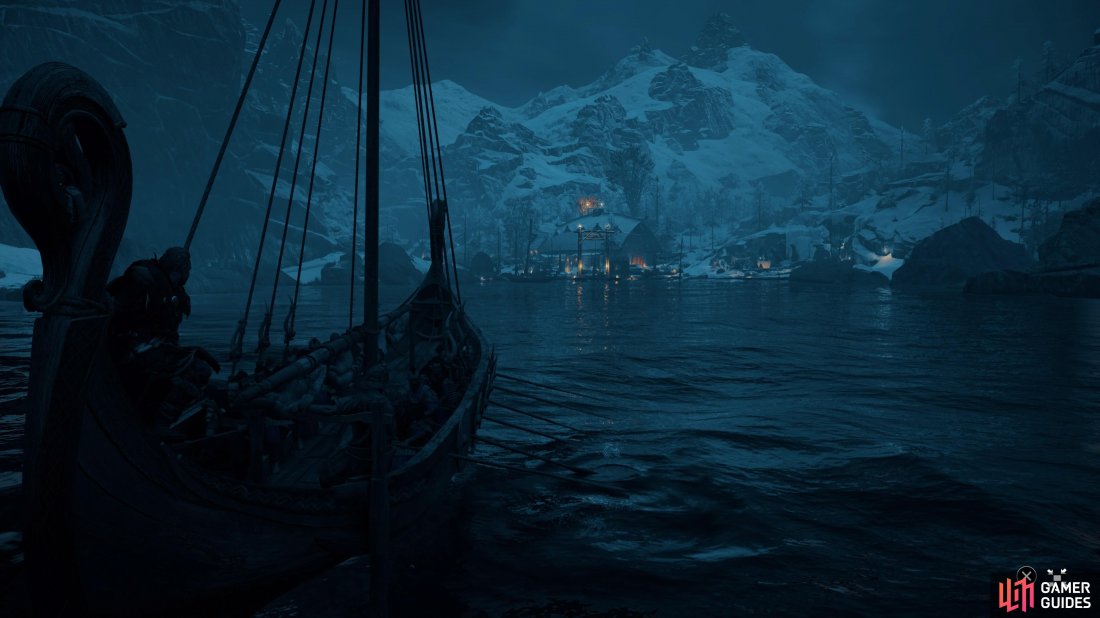
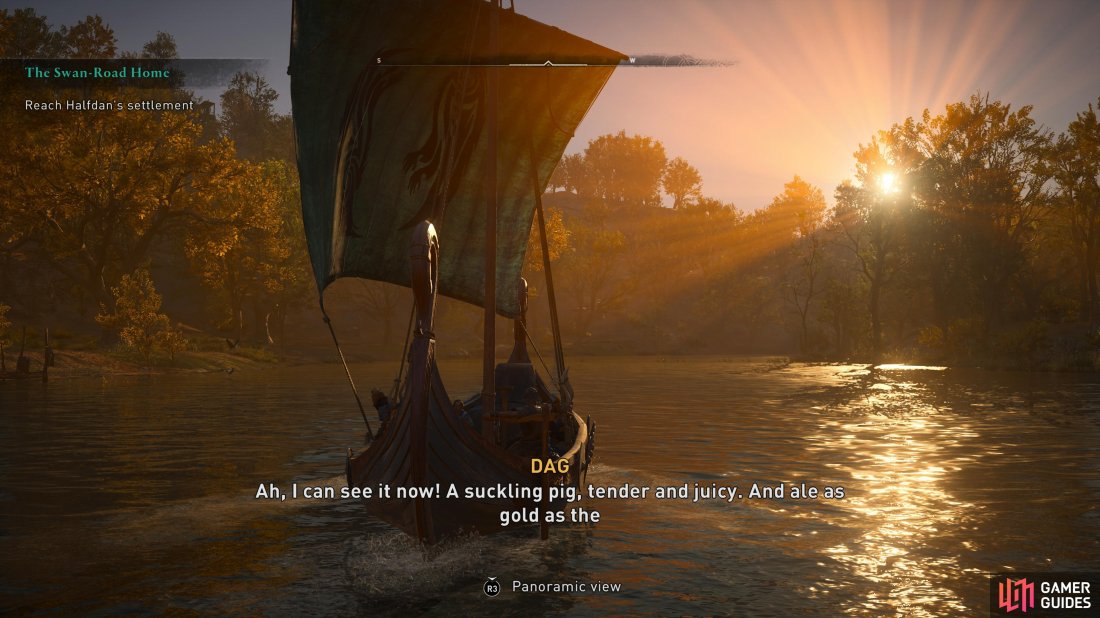
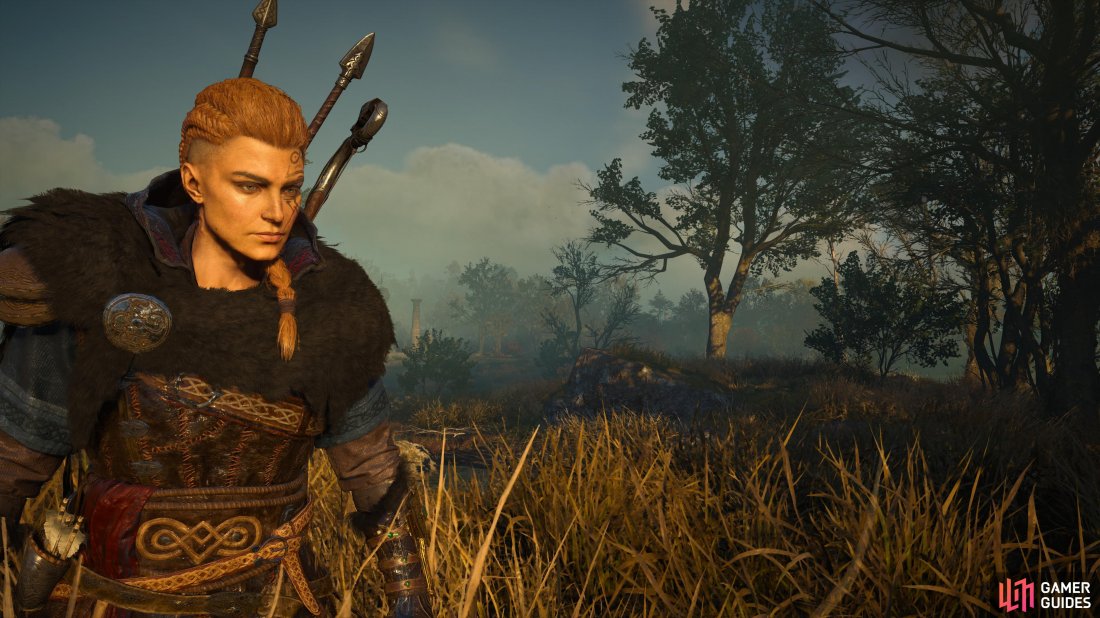
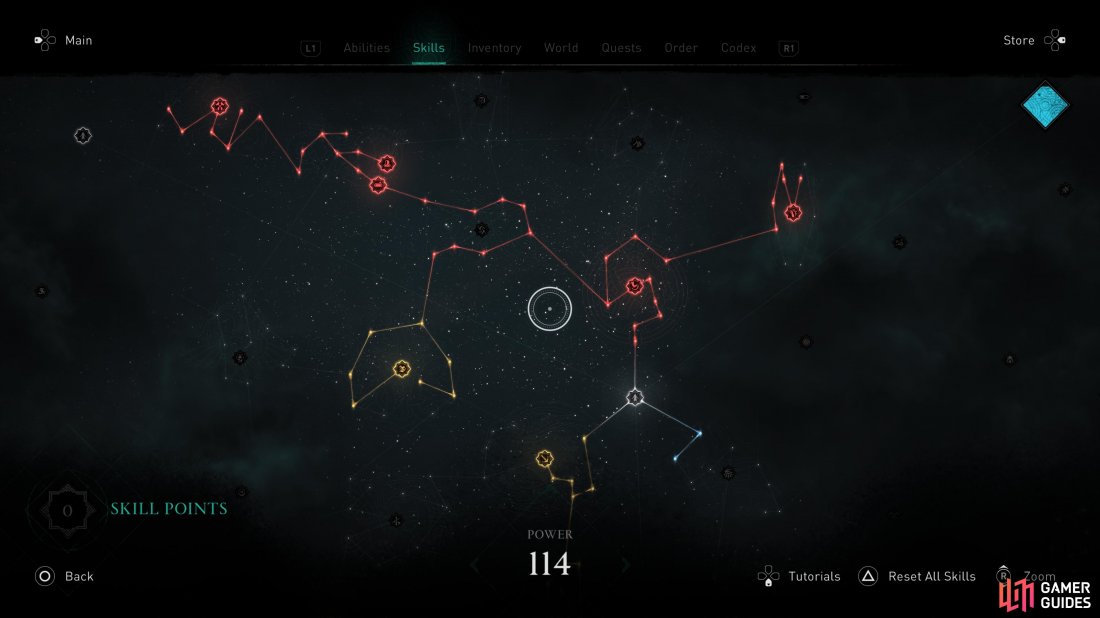
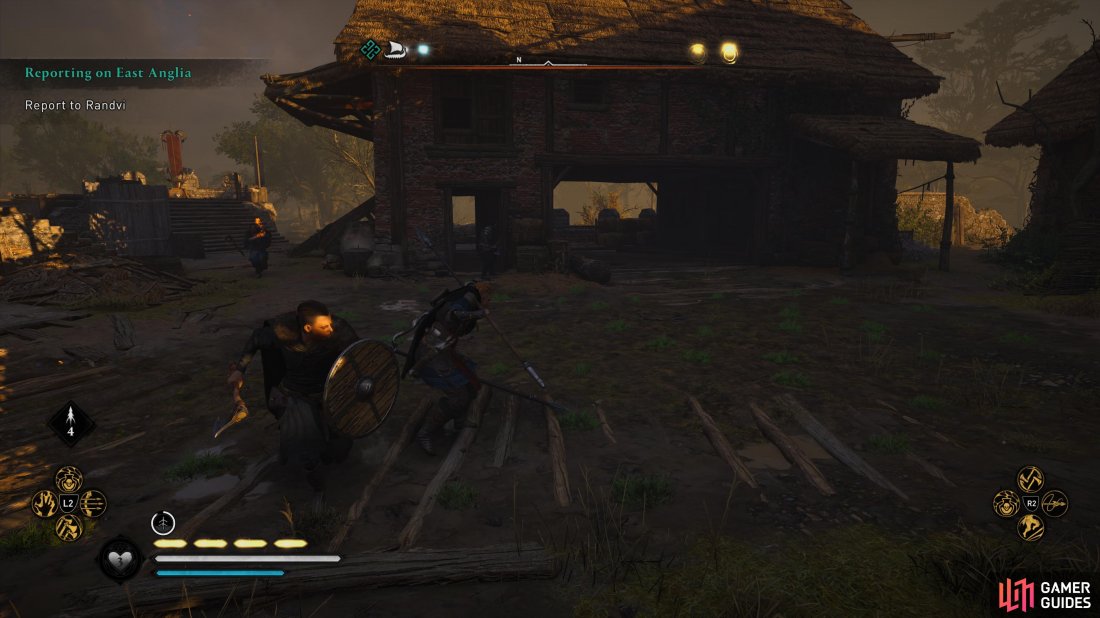
 Sign up
Sign up
No Comments